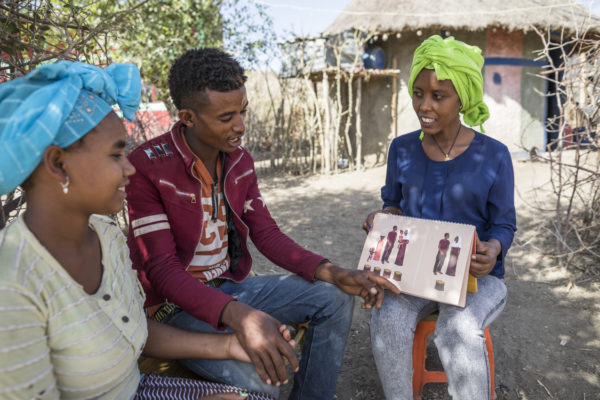In Tanzania, we wanted to reach more girls at rapid speed and scale, which meant further decentralizing mobilization responsibilities and rapidly onboarding new local partners to ‘own’ this critical component.
We, therefore, invited school teachers to engage in mobilization.
But in our data monitoring through our adaptive implementation approach, we saw the numbers of girls who turned up for A360 programming rise while voluntary contraceptive acceptance rates dipped.
What to do?
We dug into our qualitative data and found that girls’ trust in the intervention was being diminished – teachers were giving girls messages to attend for reasons that were counter to the girl-powered concepts core to A360’s unique approach.
For example, suggesting a girl should attend an A360 event to “learn to avoid temptation” rather than emphasizing the actual aim: to help her set plans and build skills to reach her dreams. It’s an example of how enduring adverse social norms—even when we designed to guard against them—can reemerge and disrupt in places one doesn’t expect.
Without our adaptive implementation approach, we might have continued with this same strategy for mobilization in schools and only realized when it was too late that this kind of organic adaptation was to our detriment.
Our solution? We switched messengers.
Today, we engage “Kuwa Mjanja queens” and frontline workers who are trained to deliver the message that Kuwa Mjanja is for girls who dare to dream.
Keep exploring.
A360 applies Adaptive Implementation to systematically understand when and how to real-time adapt programming, while also helping us to make fails into a “fail fasts.”
We chatted with Valéry Ridde, Director of Research at the French Institute for Research on Sustainable Development, and Claire Cole, PSI’s Implementation Science & Learning Advisor, to explore how adaptive implementation can help teams better set themselves up to ensure their interventions stay responsive to the people we serve, and to the unexpected complexities that are the hallmark of real-world settings.





